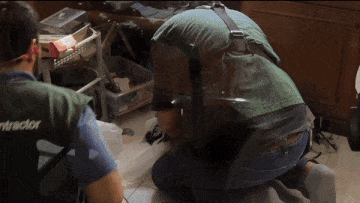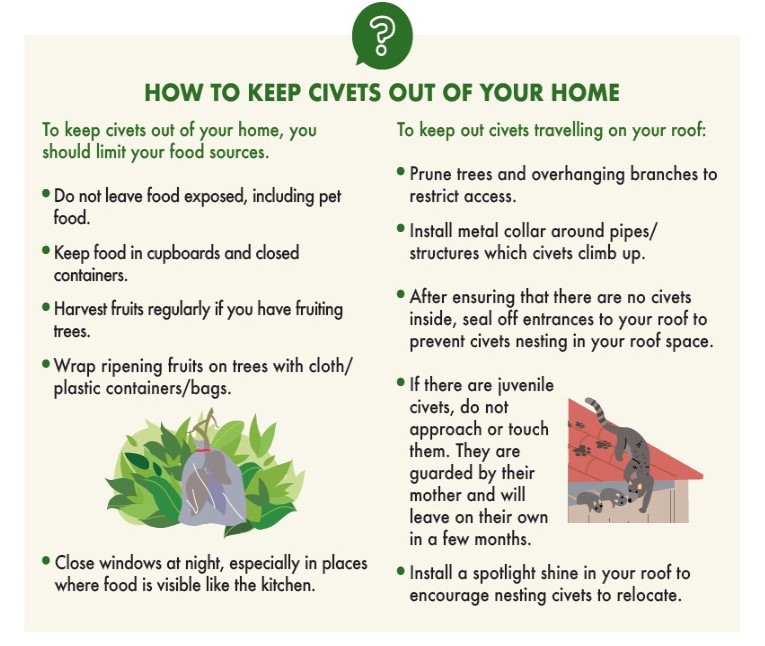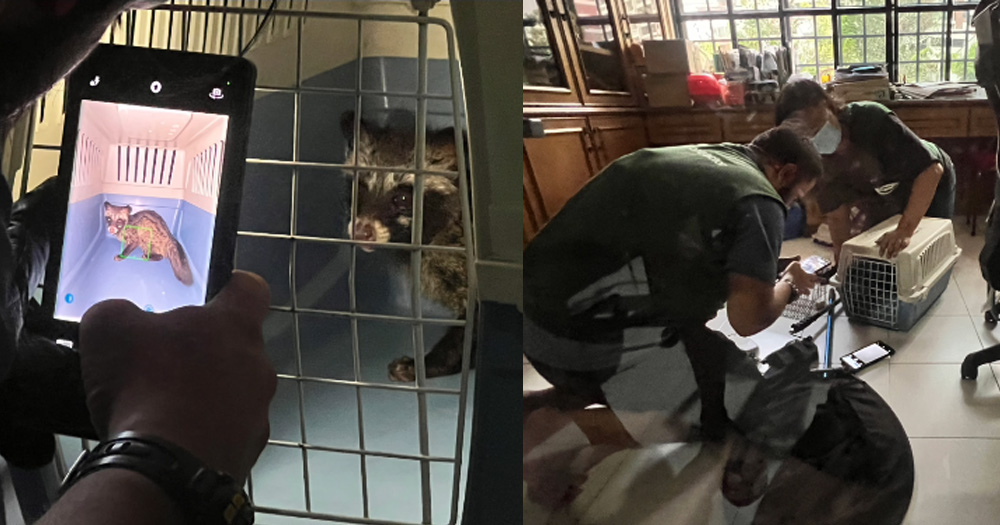A man in Singapore appears to have solved a mystery that had plagued his home for six years.
TikTok user Colin Chew took to the social media platform with a video detailing his experience "battling" a civet who had made a habit of chilling in his ceiling.
@colinchew83 Finally, After 6 years of battling this creature. Kudos to Nparks and Nparks contractors! Thank you so much! @National Parks Board Singapore #singaporetogether #civetcats #sgtiktok #fyp ♬ 芭比q了 - 邓家忠
"I was wondering why my ceiling had this loud thud and slightly damaged," wrote Chew in captions.
They were accompanied by images of his ceiling, which was missing a chunk of plaster.
"And finally we caught this culprit!"

The video showed two individuals dressed in dark green National Parks Board (NParks) contractor vests placing a civet into an animal carrier.
"Looks cute? Not when it sh*ts and damages your property," wrote Chew, comparing the small mammal to otters.
The presumably relieved Chew also added a note of appreciation to NParks and its contractors for their help.
Civet cats are known to make a home in building roofs
According to NParks, despite being commonly called the "civet cat", civets — also called musang — are not actually cats; they are more closely related to mongooses.
While usually found living in the forests, parks, and mangroves, they are also known to make a dwelling out of roof spaces in buildings — as Chew can attest to.
If you do not wish to host civets in your home, NParks recommends that you should avoid leaving food out in the open and prune trees and overhanging branches that might allow them easy access to your roof.
 Image via NParks
Image via NParks
If you do run into civets, you're advised to leave them alone; cornering or chasing them might provoke them to attack.
The same goes for baby civets that you might find living on your property.
According to NParks, baby civets will start to venture out two to three months after their birth and will eventually follow their mother for foraging before moving out of your house.
If not, you can also call NParks' Animal Response Centre at 1800-476-1600 if:
- A civet is trapped in your house and unable to leave on its own
- The civet appears to be injured
- You require further advice on civet-related issues
Mothership has reached out to Chew for comment.
Related story:
Top image from Colin Chew's TikTok account
If you like what you read, follow us on Facebook, Instagram, Twitter and Telegram to get the latest updates.
